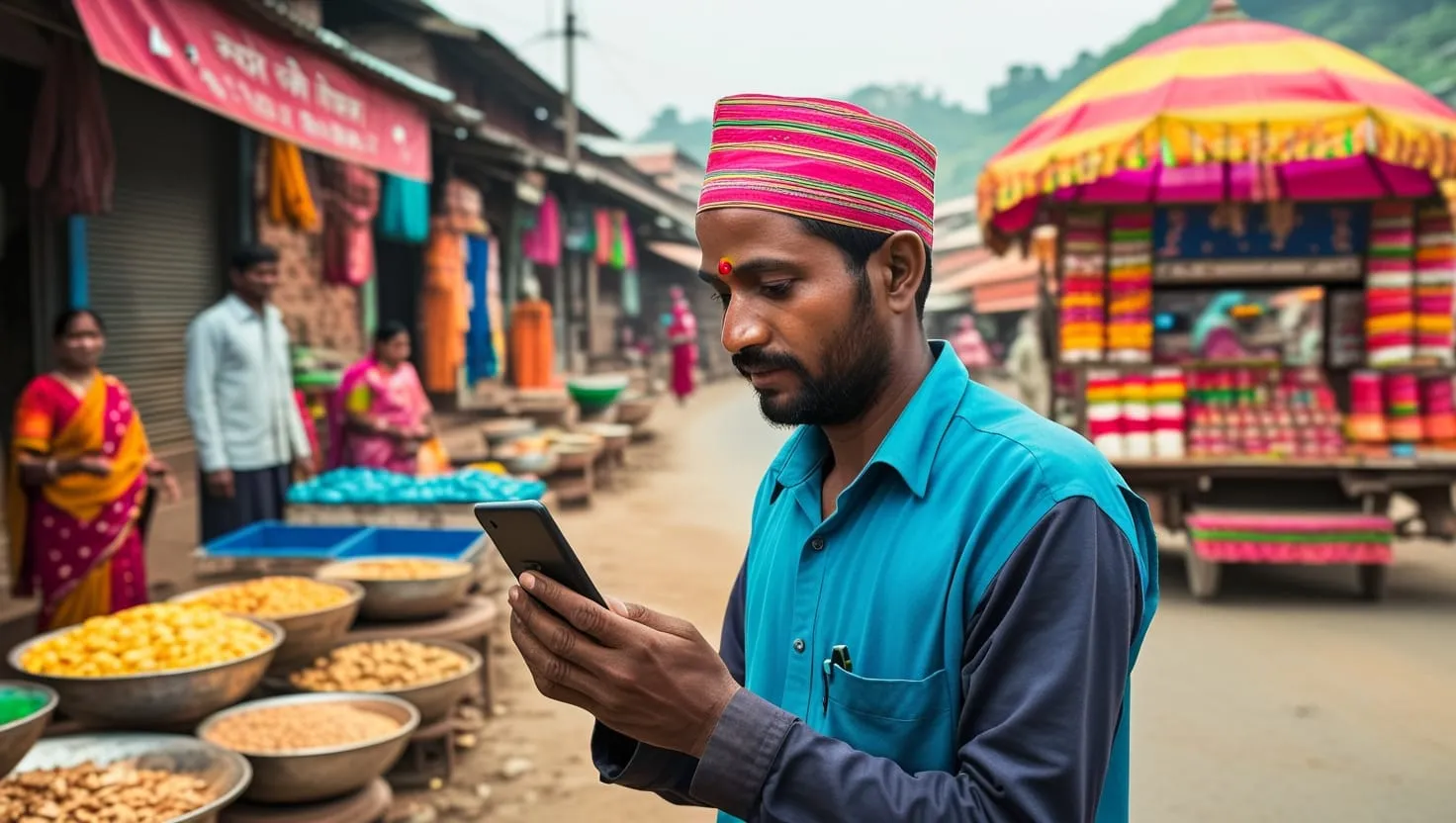In the heart of rural India, a quiet revolution is underway, driven by the transformative power of fintech. Meet Meera, a small village shopkeeper, whose life has been significantly altered by the advent of digital payments and mobile banking. Meera's story is not an isolated one; it represents the thousands of rural Indians who are now embracing fintech as a tool for financial inclusion and economic empowerment.
The Digital Awakening
Meera's journey into the world of fintech began when she first heard about the Unified Payments Interface (UPI) from a neighbor. UPI, introduced in 2016, has been a game-changer in India's digital payments landscape. It allows users to make transactions using just their mobile phones and a unique virtual payment address. For Meera, this meant she could receive payments from customers instantly, without the hassle of handling cash or waiting for cheques to clear.
As Meera delved deeper into the world of digital payments, she discovered mobile banking apps and digital wallets. These tools enabled her to manage her finances more efficiently, track her expenses, and even save money. The convenience was undeniable; she could now conduct financial transactions from the comfort of her shop, saving time and effort that would otherwise be spent traveling to the nearest bank.
Financial Inclusion for the Unbanked
One of the most significant impacts of fintech in rural India is the inclusion of the previously unbanked population into the formal financial system. Traditional banking services have long struggled to establish a robust presence in rural areas due to infrastructural limitations and high operational costs. However, digital payment solutions have bridged this gap, allowing individuals in even the most remote villages to engage in secure and convenient transactions.
Meera's village, like many others, has seen a surge in the use of mobile payment platforms and digital wallets. These platforms provide a simple and accessible means for individuals to engage in financial transactions without the need for a traditional bank account. This inclusivity ensures that even those without a formal banking history can participate in the formal economy, saving, investing, and building credit.
Empowering Micro-Entrepreneurs
Fintech has also revolutionized the way micro-entrepreneurs in rural India access credit. LendingTech, a fast-growing vertical in India's fintech sector, has made it possible for small business owners like Meera to secure loans quickly and efficiently. The digitalization of lending processes, facilitated by technologies like the India Stack, has enabled lenders to make quicker lending decisions based on creditworthiness.
Meera, who once struggled to get a loan from traditional banks due to the lack of collateral and lengthy processing times, can now apply for and receive loans through digital lending platforms. This has enabled her to expand her shop, invest in new inventory, and hire additional staff, contributing to the economic growth of her village.
Simplifying Remittances for Migrant Workers
For migrant workers, fintech has simplified the process of sending remittances back to their families in rural areas. Digital payment solutions have reduced the dependency on cash and intermediaries, making transactions more transparent, accountable, and secure. Meera's cousin, who works in a city, can now send money back home with just a few taps on his phone, ensuring that the money reaches his family quickly and without any deductions.
Overcoming Digital Literacy and Infrastructure Challenges
Despite the numerous benefits of fintech, there are still significant challenges to overcome. Digital literacy remains a major hurdle in rural India. Many individuals lack the basic knowledge required to use digital financial services effectively. To address this, various initiatives such as the Pradhan Mantri Gramin Digital Saksharta Abhiyan (PMGDISHA) have been launched to impart digital literacy skills to rural populations.
Meera, who initially struggled to understand how to use mobile banking apps, benefited from such initiatives. Local workshops and training sessions, often conducted in the local language, helped her and many others in her village to become more adept at using digital financial tools.
Infrastructure is another critical challenge. Internet connectivity and high-speed broadband networks are essential for the smooth operation of digital financial services. The BharatNet project, aimed at connecting rural areas with high-speed broadband networks, has been instrumental in providing access to digital services in remote villages.
Innovative Solutions for Rural Users
The fintech industry has been working tirelessly to develop solutions tailored specifically for rural users. One innovative approach is the "agent model," where local shop owners are enabled to become bankers in their areas. These local shops are converted into digital financial services hubs, providing easy-to-use cash withdrawal services, money transfer services, and other digital payment solutions.
Meera's shop has become one such hub, where villagers can come to withdraw cash, transfer money, and even purchase insurance and investment products. This model not only provides financial services but also creates employment opportunities for local residents.
Economic Transformation
The impact of fintech on rural economies is multifaceted. By facilitating transparent and efficient transactions, digital payments have transformed the agricultural landscape. Farmers can now receive payments for their produce directly into their digital wallets, eliminating intermediaries and ensuring a fair price for their work. This has not only reduced the risk of exploitation but also enhanced the overall efficiency of the agricultural supply chain.
Moreover, the shift towards digital transactions has promoted a more inclusive and equitable financial system. It has curbed corruption and reduced the risks associated with carrying large sums of cash. For Meera and her community, this means a safer and more secure way of conducting financial transactions.
A Future of Financial Inclusion
As technology continues to evolve and reach even the remotest corners of India, the dream of a financially inclusive society is becoming a reality. Meera's journey is a testament to the transformative power of fintech in bridging the digital divide and empowering rural communities.
The Indian government's initiatives, such as the Digital India Program, have played a crucial role in promoting financial inclusion through digital payments and banking services. The demonetization drive in 2016 further accelerated the adoption of digital payment methods, leading to a surge in the use of mobile wallets and UPI.
As more rural Indians like Meera embrace fintech, the economic landscape of rural communities is undergoing a significant transformation. Fintech is no longer just an urban phenomenon; it is a powerful tool for financial inclusion and economic empowerment in India's heartland.
In conclusion, Meera's story highlights the potential of fintech to revolutionize rural economies. By addressing the challenges of digital literacy and infrastructure, and through innovative solutions tailored for rural users, fintech is bridging the digital divide and empowering millions of Indians. As we move forward, it is clear that fintech will continue to play a pivotal role in shaping a more inclusive and prosperous future for rural India.






